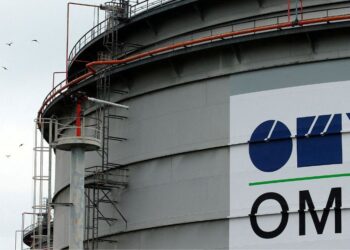The U.N. secretary-general warned Tuesday at the opening of the annual General Assembly that a “winter of discontent is on the horizon” in a world “paralyzed” by divisions despite mounting crises, from the war in Ukraine to global warming.
“The crisis of purchasing power is raging, confidence is crumbling, inequality is exploding, our planet is burning,” and yet, “we are stuck with a colossal global dysfunction,” said Antonio Guterres as he opened this week’s high-level United Nations General Assembly.
“These crises threaten the very future of humanity and the fate of the planet,” he said. “Let us not delude ourselves. We are in rough seas. A winter of global discontent is on the horizon.
After the Secretary General, for several days, dozens of heads of state and government from all over the world will speak at this annual diplomatic grand mass which resumes in person after two years disrupted by Covid-19.
Traditionally, this first day is dominated by the speech of the American president who, as the leader of the host country of the UN headquarters, speaks first. But exceptionally — as on very rare occasions in the past — this will not be the case: Joe Biden, who was on Monday at the funeral of Queen Elizabeth II, has postponed his speech to Wednesday.
“North-South “fracking
Among the dangers that threaten the world mentioned by the Secretary General, the invasion of Ukraine by Russia.
While Moscow announced on Tuesday a referendum to annex the Kherson region under the control of its troops, this war will be at the heart of this high-level diplomatic week.
This includes an intervention on Wednesday by Ukrainian President Volodymyr Zelensky — by video thanks to a special authorization voted last week by the member states — and a Security Council meeting on Thursday at the level of foreign ministers.
But the countries of the South are becoming increasingly annoyed that the West is focusing its attention on Ukraine.
In an attempt to respond to the concerns of some countries, the Americans and Europeans are holding a ministerial meeting on Tuesday on food security, a consequence of this war from which the whole planet is suffering.
And French President Emmanuel Macron, who is due to be at the podium midday Tuesday, will insist on the need to prevent “fracturing” between countries of the North and the South, the Elysée Palace said, adding that the head of state will hold a dinner on this theme with several other leaders.
These tensions caused by the war in Ukraine echo the North-South resentment in the fight against climate change.
The poor countries, on the front line of the devastating impacts of a warming for which they are not responsible, are fighting in particular for the rich countries to finally keep their promises of financial aid.
A “suicidal war
“It is high time to move beyond these endless discussions,” said Antonio Guterres on Tuesday.
Attacking the big fossil fuel companies that “feast” on profits inflated by the war in Ukraine, he also called on rich countries to tax these profits to “redirect” them in part to countries suffering “loss and damage” due to the devastating impacts of climate change and to populations suffering from inflation.
With two months to go before the UN COP27 climate conference in Egypt, “climate action has taken a back seat” to other crises, he also denounced, calling for an end to “our suicidal war on nature”.
On Tuesday, Brazilian President Jair Bolsonaro, Turkish President Recep Tayyip Erdogan, Japanese Prime Minister Fumio Kishida and German Chancellor Olaf Scholz are also expected to take the podium.
Iranian President Ebrahim Raissi is also in New York this week for his first General Assembly and the nuclear issue could once again be at the center of discussions.
Mr. Raissi was expected to meet Tuesday with Emmanuel Macron, who has encouraged him in recent months during telephone conversations to accept the conditions proposed by the Europeans to revive the 2015 nuclear agreement that was supposed to prevent Tehran from acquiring the atomic bomb in exchange for the lifting of sanctions suffocating its economy.
This high-level week has, however, some notable absentees, in particular Russian President Vladimir Putin and Chinese President Xi Jinping.






